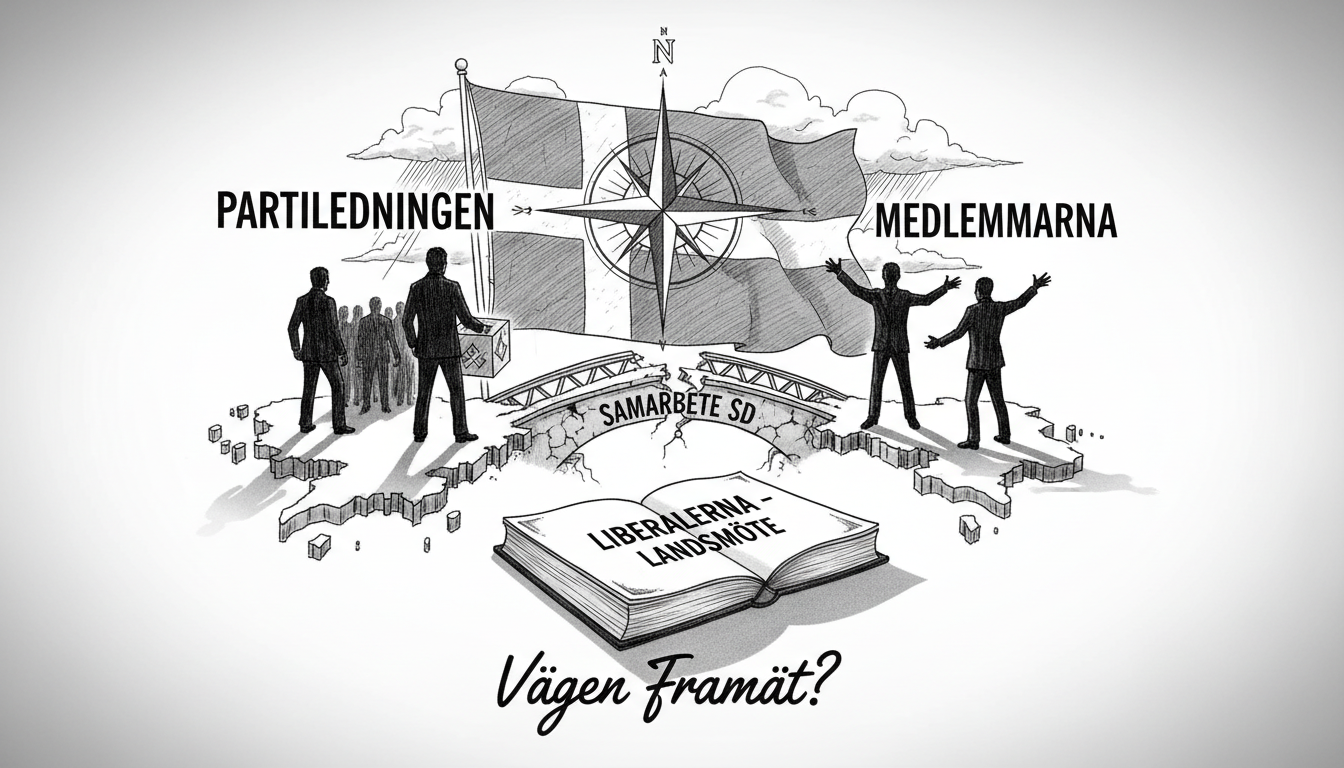Sweden's Liberal Party faces deep internal divisions over its relationship with the Sweden Democrats as party members prepare for their national convention. The most contentious issue concerns whether the party should maintain its refusal to share government power with the far-right party.
Party leadership maintains a firm stance against Sweden Democrat ministers in any future government. The party board explicitly states that Liberals will not support a government containing Sweden Democrat ministers. This position reflects the party's longstanding red line regarding cooperation with the nationalist party.
Several local branches and individual members challenge this established policy. Runo Johansson, municipal board chairman in Tidaholm, argues for removing all red lines against both the Sweden Democrats and the Left Party. He acknowledges past scandals involving Sweden Democrats but notes they've functioned as a support party during the current parliamentary term.
Johansson highlights the difficulty explaining to voters why Liberals can cooperate with Sweden Democrats on budgets but not share government positions. He promises to fight for his position during the convention debates.
Approximately sixty individual members support another motion advocating for opening the possibility of Sweden Democrat ministers. Parliament member Martin Melin, who supports this position, stands nominated for election to the party board himself.
Counter-motions reflect ongoing concerns about the Sweden Democrats' methods. Board member Jan Jönsson proposes prohibiting cooperation with parties using troll factories, disinformation, or having organized crime connections.
The Uppsala district association takes an even stronger stance. They describe Sweden Democrat proposals on morality, information disclosure, and begging bans as deliberate strategies threatening to deepen parallel societies and undermine rule of law principles. They oppose extensive policy cooperation after elections.
Party leader Simona Mohamsson anticipates vigorous debate but expects the party board's position will prevail. She cites her demonstrated requirements for the party's mandates and unified board support.
This internal conflict reflects broader tensions within Sweden's political landscape. The Liberal Party struggles to balance principled opposition with practical governance realities. The Sweden Democrats' growing influence forces traditional parties to reconsider long-held positions.
The convention debate carries significant implications for Sweden's political future. The outcome could reshape government formation possibilities after upcoming elections. It also tests party unity and leadership authority during a period of political realignment.
International observers watch these developments closely. Sweden's approach to far-right parties offers lessons for other democracies facing similar political challenges. The Liberal Party's decision could influence how center-right parties across Europe manage relationships with nationalist movements.
The internal debate reveals fundamental questions about political compromise versus principle. Party members must weigh practical governance needs against concerns about legitimizing parties with controversial histories and methods.

